The child protection system has not shifted enough since the horrific death of 5-year-old Malachi Subecz, and children in a similar situation today are not any less likely to avoid a similar fate.
That’s the sobering assessment of Aroturuki Tamariki/the Independent Children’s Monitor in a report released today, two and a half years on from Malachi’s murder, which led to national outrage.
“We are not confident that tamariki in similar situations to Malachi are any more likely to be seen, or kept safe by the system, than they were when Malachi died,” says the report titled Towards a stronger safety net to prevent abuse of children.
There are several contributing factors, one of which is limited staffing capacity leading to a greater risk of follow-up action being neglected.
“Social workers are making difficult decisions about going out to respond to reports of concern, and that’s unduly influenced by available resources,” Aroturuki Tamariki chief executive Arran Jones tells the Herald.
“That means different thresholds for intervention, and that can only mean children are at risk.”
About half of the reports of concern raised with Oranga Tamariki by NGOs are not acted upon, he says.
“These are people working on the frontlines who know what’s needed. Not seeing action taken must be heartbreaking, and deeply worrying and frustrating for them,” Jones says.
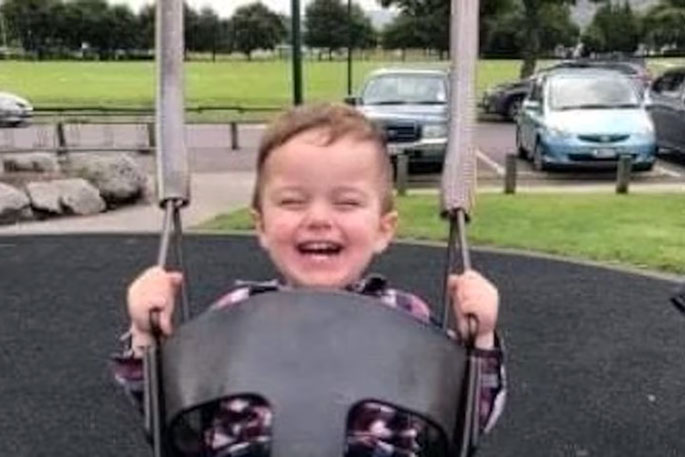 Malachi Subecz's family want him to be remembered for his kind nature. Photo / Supplied.
Malachi Subecz's family want him to be remembered for his kind nature. Photo / Supplied.
The report is the latest in a long succession of similar ones over 30 years that have called for systemic and urgent change - which has not materialised.
It follows the release last week of the final report of the Royal Commission of Inquiry into abuse in state and faith-based care, which said 200,000 people had suffered abuse and the entire system needed to be overhauled to prevent abuse that, at times, continues to this day.
“We can never guarantee the safety of kids, but we need to have done everything we can,” says Jones.
“At the moment, we can’t say that we’re doing that. A child is killed every five weeks. You only have to look at the photos of Malachi and others who have died to know these kids are innocent. The costs of not doing everything we can are horrendous.”
What happened to Malachi?
Malachi was killed by his carer Michaela Barriball, who was jailed for a minimum of 17 years.
He was admitted to Starship Hospital with a traumatic brain injury in early November 2021 and died 10 days later having been beaten, starved and scalded in the months leading up to the fatal injuries he died from.
Though Malachi was not in state care - he was placed in Barriball’s care after his mother was imprisoned - the state could have intervened on several occasions.
His whānau raised concerns with Oranga Tamariki and police, as well as with Malachi’s daycare. But Oranga Tamariki decided no further action was needed, despite not sending anyone to see Malachi.
A probation officer also told Oranga Tamariki of concerns, but the agency said these were beyond its scope because it had already decided that there were no care and protection concerns.
Several reviews followed the murder, including a whole-of-system review by Dame Karen Poutasi, published in December 2022, which found “critical gaps” in New Zealand’s child protection system, which allowed vulnerable children to “become invisible”.
She made 14 recommendations across child protection, education, welfare and health sectors to create a “hard-wired safety net”.
One of them was for Aroturuki Tamariki to review progress on those recommendations, which is what today’s report looked into.
“The progress to date was disappointing. The lack of urgency, and what appears to be a lack of priority given to addressing child abuse in New Zealand, is hard to understand,” says the report.
The main reasons include:
- Recommendations in the Poutasi review have not been implemented, and the system change she called for has not happened
- Individual agency reviews have made limited progress, which doesn’t address the fundamental underlying problems
- Agencies are not adequately prioritising child protection, and struggle to collaborate and share information
- Oranga Tamariki is not sufficiently focused on the safety of the child, and social workers are forced to make decisions on when to act based on staff availability.
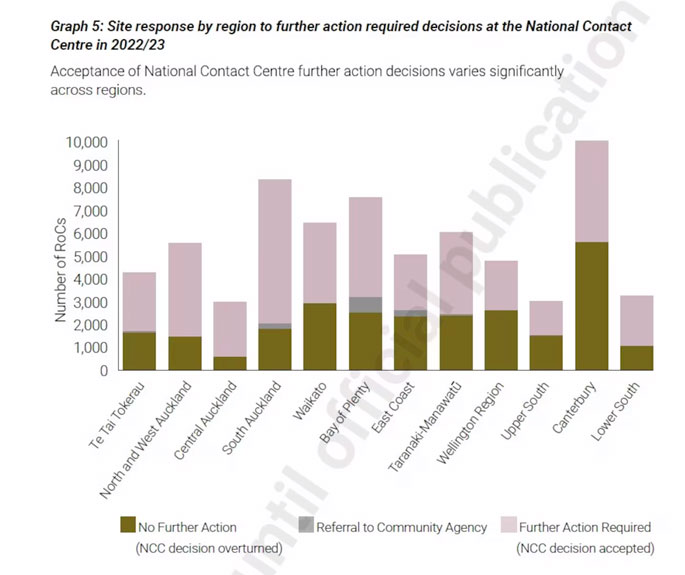 About half of the National Contact Centre decisions are overturned by regional staff, but there is no consistency across regions. Source / Independent Children's Monitor.
About half of the National Contact Centre decisions are overturned by regional staff, but there is no consistency across regions. Source / Independent Children's Monitor.
Cases being missed
“Sites should have enough resource to investigate and address cases of concern, but we heard that generally they do not,” says the report.
This led to inconsistent responses for deciding when to take further action; about half of all assessments from the National Contact Centre calling for further action are downgraded to “no further action required”, with results varying from region to region.
The report involved speaking to Oranga Tamariki national office and the NCC, as well as 85 workers (mostly frontline) across 16 Oranga Tamariki sites in Auckland, the Bay of Plenty and Canterbury.
One site leader quoted in the report says: “My understanding is that we [sites] are to accept everything [as it is assessed by the NCC] but sites don’t because of workload ... Sites go we can’t possibly look into these concerns because we have other work.”
Another site leader says: “If we were to allocate every report of concern from the contact centre, oh lord, our social workers would burn out.”
The report notes that time spent reassessing cases could be spent visiting tamariki.
Other frontline leaders in the Bay of Plenty say there is a hiring freeze, while those in Auckland and Canterbury say they’ve been understaffed for a long time.
“It’s all driven to save money. I’m tracking towards seven vacancies; I was told last night I can take on two social workers,” one site leader says.
This suggests that capacity limits are exacerbated by the Government’s fiscal discipline approach and public sector cuts.
Oranga Tamariki says there is no staffing freeze, but a workforce capacity issue with 160 social worker vacancies nationwide.
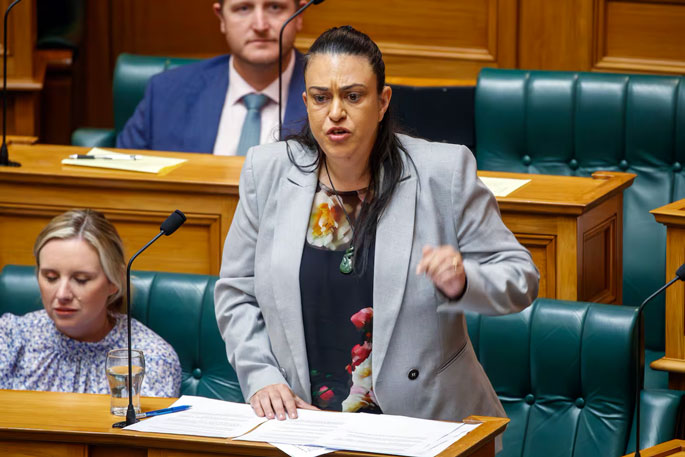 Minister for Children Karen Chhour is repealing section 7AA of the Oranga Tamariki Act because she says it detracts from having the safety of children as the agency's highest priority. Photo / Mark Mitchell.
Minister for Children Karen Chhour is repealing section 7AA of the Oranga Tamariki Act because she says it detracts from having the safety of children as the agency's highest priority. Photo / Mark Mitchell.
Section 7AA in the spotlight
The report heard from some frontline workers that more weight is given to the voice of whānau, “with the needs and safety of tamariki secondary”.
“This is impacting on site decision making, and other agencies and NGOs are saying the threshold for statutory intervention to keep tamariki safe remains too high and unclear. As a result, trust and confidence of agencies and NGOs is eroding, with a decline in the number of professionals making reports of concern.”
This highlights the contention around section 7AA of the Oranga Tamariki Act, which aims to keep the state’s response to vulnerable children whānau-centred.
The Government is repealing this provision, saying it has led to child uplifts from stable long-term care into groups they whakapapa to. Oranga Tamariki has conceded there are cases like this, but the safety of the child is always front and centre, and there’s no evidence they happened because of section 7AA.
Jones says the 7AA provision isn’t necessarily the problem, as long as it isn’t interpreted as working with the whānau trumping the needs of the child.
“It’s and-and, not one or the other, with the needs of the child paramount.”
The report adds that without a well-resourced NGO sector, “tamariki and whānau needs will remain unaddressed, and over time are likely to worsen”; this morning RNZ reported a number of NGOs saying their funding from Oranga Tamariki will be cut.
There are also more gaps opening up in the system, including more evictions from public housing, and police withdrawing from family harm callouts. This indicates agencies are still working in isolated silos, rather than collaboratively.
“These gaps must first be addressed before considering additional demands and changes such as mandatory reporting [as Poutasi recommended],” the report says.
Jones adds that when agencies step away, “we don’t have eyes on these children. We shouldn’t be creating further gaps, but closing them.”
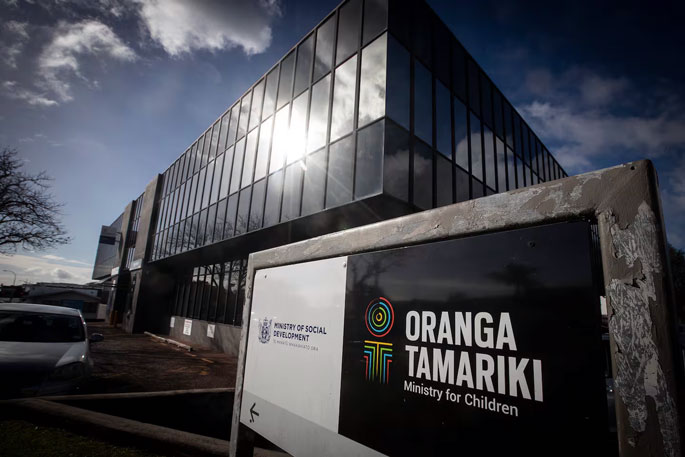 Oranga Tamariki - Ministry for Children and Ministry of Social Development offices on Queen Street in Papakura. Photo / Jason Oxenham.
Oranga Tamariki - Ministry for Children and Ministry of Social Development offices on Queen Street in Papakura. Photo / Jason Oxenham.
Oranga Tamariki responds
The agency welcomes the report but says it suffers from “limited and narrow” research.
“The Monitor appears to have made some generalisations about the broader children’s system based on ‘some’ comments it has heard from frontline Oranga Tamariki kaimahi.
“The safety of tamariki in New Zealand is complex, and determined by a multitude of factors, which the Nonitors [sic] review did not consider. Improving child safety is not something that Oranga Tamariki can change alone in 18 months.”
The agency notes under-investment in the agency, as well as social workers under significant pressure. But it disagrees with the assessment that the safety of children was not adequately prioritised, and with the Monitor’s description of a lack of progress on Poutasi’s recommendations.
“Much of the work requires careful and considered consultation with key partners and communities to inform how the Government and children’s system agencies best respond,” says the agency.
“Changes may require legislative, regulatory and operational change underpinned by years of investment, depending on the nature of decisions made.
“Agencies remain committed and focussed on progressing these recommendations.”
Jones has limited sympathy for the work that government agencies are still progressing.
“I can understand that to a degree - some require legislative change - but these issues have been around for a long time. Dame Karen’s report didn’t raise anything that wasn’t already known - collaborative working, information-sharing, for example.”
He rubbishes the criticism of having taken a narrow view, pointing to regular monitoring in addition to the people and the sites they visited for the report.
“We’ve visited a third of the communities around New Zealand and spoken to staff, police, NGOs, families and children. Everything we’ve heard from those visits corroborates what the report says.”
Progress will continue to be monitored, with another report in 12 months. “We won’t let it go.”

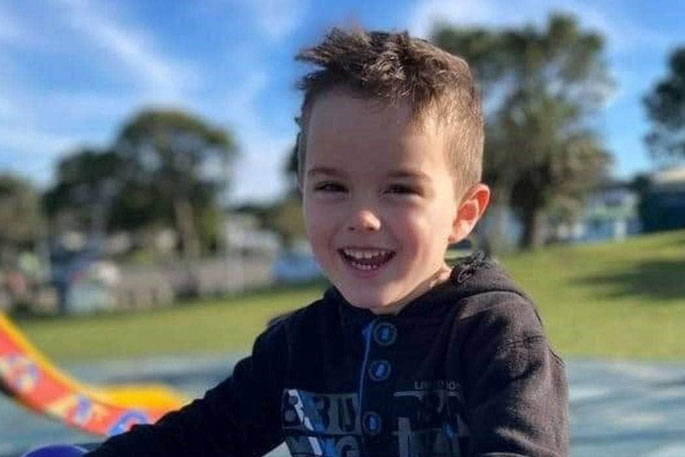

1 comment
parents only
Posted on 08-08-2024 13:28 | By rotovend
the state or churches etc have never anywhere in the world been able to successfully look after other peoples children. I cant see it ever being an ideal situation for kids.
Leave a Comment
You must be logged in to make a comment.